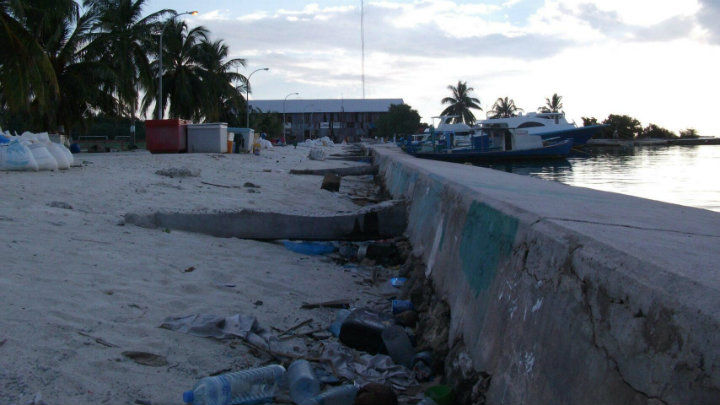Imaginary harbours
The fisher people of Gaafaru have been waiting on harbour repairs for a decade. Why do promised development projects never materialize?

24 Nov 2015, 09:00
The ferry to Kaafu Atoll Gaafaru entered through a narrow channel, deftly avoiding collision with the rocky reef. The harbour ahead of us, built by hand in 1998, was crooked and cracked: The Indian Ocean Tsunami of 2004 had washed out the sand underneath, causing the concrete slab to lean into the water at a dangerous angle. When we docked, the young and elderly struggled to get off the ferry without falling into the water.
The fisher people of Gaafaru have been waiting for repairs for a decade. Some MVR65.4million was earmarked for a new harbour in 2014 and 2015, but work never began. The project has now disappeared from next year’s budget.
Gaafaru, home to some 30 fishing vessels and a 1000 people, supplies most of the fish consumed in Malé, but islanders say they are neglected by the central government.
“The government of Malé does not care for us because we are a small community,” said Ali Hashim, an island councilor. “But is it our fault that we were born to a community with less people? Don’t we deserve harbors, sewerage systems, healthcare and other basic needs, too?”
Become a member
Get full access to our archive and personalise your experience.
Already a member?
Discussion
No comments yet. Be the first to share your thoughts!
No comments yet. Be the first to join the conversation!
Join the Conversation
Sign in to share your thoughts under an alias and take part in the discussion. Independent journalism thrives on open, respectful debate — your voice matters.




